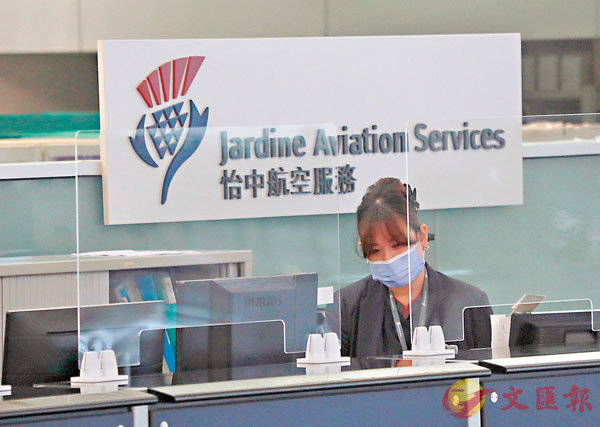 ■怡中航空表明因「保就業」計劃結束而裁員。 資料圖片
■怡中航空表明因「保就業」計劃結束而裁員。 資料圖片【原文】「保就業」計劃秘書處於11月4日公布第四批領取第二期工資補貼的僱主名單,至此,第二期「保就業」計劃合共向約13.5萬名僱主批出合共近370億元補貼,承諾受薪僱員人數約156萬名,但這種「普惠」的「保就業」計劃到12月就結束,申請過補貼的僱主將可重啟裁員減薪。在新冠疫情持續的情況下,旅遊、航空、餐飲、酒店等重災區面對極大裁員壓力,政府必須及時推出針對性的措施,為深受疫情打擊的行業和打工仔提供基本保障,協助他們渡過難關。
為幫助企業在疫情影響下不大幅裁員,政府在過去半年推出兩輪「保就業」計劃,代企業支付一半員工薪金,以解燃眉之急。計劃由5月起共推出兩期,財政司司長陳茂波日前表明不會有第三期,意味着曾參與計劃的企業,可在12月起恢復裁員減薪。有調查顯示,三成半人認為自己未來半年會面臨裁員減薪,年輕人之中更有超過四成擔心被「炒魷魚」。
「保就業」計劃為及早紓困救急,採取簡單的「普惠」原則,對所有僱主開放申請,審批也較寬鬆,兩期共花費800億元公帑。這種「普惠」措施,對避免受疫情嚴重影響企業裁員固然有一時作用,但有意見認為欠缺針對性,未能定向照顧真正有需要的行業和打工仔。超市、物業管理等受疫情影響不大的行業,同樣可得到資助,卻未將津貼按要求回饋僱員、市民,變相令企業「自肥」,引起公眾非議;有部分企業在領取津貼後,仍然要求員工減薪或放無薪假,令計劃初衷走樣。
而且,本港疫情並未受控,經濟短期內難以走出困境,就業市場亦不容樂觀。繼國泰航空早前裁減5,300名本港員工之後,怡中航空服務亦宣布裁減340名員工,更明言是因為「保就業」計劃結束而裁員。大企業尚且如此,中小企的結業裁員潮可能陸續有來 。
本港7月至9月的失業率升至6.4%的16年高位,失業人數增加至25萬9,800人,其中多個高危行業都超越雙位數。與旅遊相關的零售、住宿及膳食服務業,失業率升至11.7%,是沙士後的高位;餐飲服務業的失業率和就業不足率更急升至15.2%及9.5%。餐飲聯業協會會長黃家和表示,單計過去一個月,整體生意仍比平常跌三成以上,估計未來兩三個月將有超過2,000間食肆結業。
「保就業」計劃結束,但疫情遠未結束,高危行業的打工仔隨時手停口停,政府不能袖手旁觀,仍然需要積極研究、盡快推出有針對性的紓困政策,精準幫助受疫情衝擊最嚴重的行業僱員。多個政黨早前均要求政府為失業和放無薪假人士推出短期的失業援助金,政府應虛心聆聽,採納可行的建議,順應民意,善用財政儲備,助打工仔解決「斷米」的燃眉之急。 ( 摘錄自香港《文匯報》社評 2020-11-5)
Introduce targeted measures to protect wage earners' livelihoods
【譯文】On 4 November, the Employment Support Scheme (ESS) Secretariat published the name list of the fourth batch of employers who have received wage subsidies under the second tranche of ESS. Up to this point, a total of about 135,000 employers have received almost HK$37 billion from the second round of the government's wage subsidy scheme, involving a total committed headcount of paid employees of about 1.56 million. However, this inclusive wage subsidy plan is going to end in December this year, and employers who have benefitted from the plan will be able to make redundancies and slash wages again. As the Covid-19 pandemic continues to wreak havoc around the world, hard-hit industries such as tourism, aviation, catering, and hotel are now under great pressure to lay off workers. The government must promptly introduce targeted measures to help these industries and their workers to survive.
To discourage enterprises from carrying out large-scale layoffs due to the impact of the Covid-19 pandemic, the government launched two rounds of ESS in the past six months and paid half of the employees' salaries on behalf of the applicant companies.
With the government having rolled out two rounds of ESS since May, Financial Secretary Paul Chan Mo-po recently stated that there will be no third round. That means companies that have participated in the scheme can start cutting jobs and wages again starting from December. According to a survey, 35 per cent of respondents think they are going to lose their jobs or face pay cuts in the next six months, while over 40 per cent of young respondents are worried about their job security.
To provide assistance as soon as possible, the ESS adopted the "inclusive" principle, where applications were processed with leniency and were open to all employers, draining HK$80 billion from the public coffers. An "inclusive" measure such as the ESS no doubt is effective in stopping companies that are hit hard by Covid-19 from cutting jobs, but its effects are temporary only. Some also suggest that it lacks focus, and therefore cannot help those sectors and workers that are truly in need. For instance, supermarkets and property management companies still received subsidies from ESS despite being relatively unscathed in the midst of the Covid-19 pandemic. The wage subsidies were also kept by these companies instead of going into the pockets of workers and citizens as promised. Such self-enriching behaviour has drawn criticism from society. The aims and objectives of ESS were also distorted, as some companies still cut wages and request employees to take unpaid leave after receiving subsidies.
As the Covid-19 pandemic is not under control in Hong Kong yet, the economy is not going to recover in the near future whereas the labour market outlook is also becoming increasingly pessimistic. Following Cathay Pacific's layoff of 5,300 local employees, Jardine Aviation Services has also announced the layoff of 340 employees, clearly citing the ending of ESS as one of the reasons behind its decision. When this could happen to large enterprises, waves of layoffs in small and medium businesses will likely come soon.
As the unemployment rate in Hong Kong hits a 16-year high of 6.4 per cent in the period between July and September, the number of people that are out of jobs rose to 259,800. Multiple industries that are dealt a severe blow by the Covid-19 pandemic now have double-digit unemployment rates. Among them, the figure for tourism-related sectors including the retail, accommodation, and food services sectors rose to 11.7 per cent, which is the highest since the SARS outbreak. Meanwhile, the unemployment and the underemployment rate for the food and beverage sector also soared to 15.2 per cent and 9.5 per cent respectively. According to Simon Wong Ka-wo, president of the Hong Kong Federation of Restaurants and Related Trades, business in the past month alone has fallen by over 30 per cent. He estimates that more than 2,000 eateries will be forced to close down in the coming two or three months.
ESS is coming to an end soon, but the Covid-19 pandemic is staying. As the livelihoods of wage earners working in hard-hit sectors are now hanging in the balance, the government must not sit idle. The government has to actively explore and roll out as soon as possible targeted measures to help those who are truly in dire need. Multiple political parties have already demanded the government to introduce short-term unemployment benefits for those who are put on unpaid leave or are jobless. The government should listen with an open mind, and be prepared to make use of its fiscal reserves to help those wage earners meet their urgent household needs.■Jeffrey Tse
Exercise
1. 勞動力
2. 財政政策
3. 財政預算
4. 失業
5. 就業不足
Answer
1. workforce/ labour force
2. fiscal policy
3. budget
4. unemployment
5. underemployment

